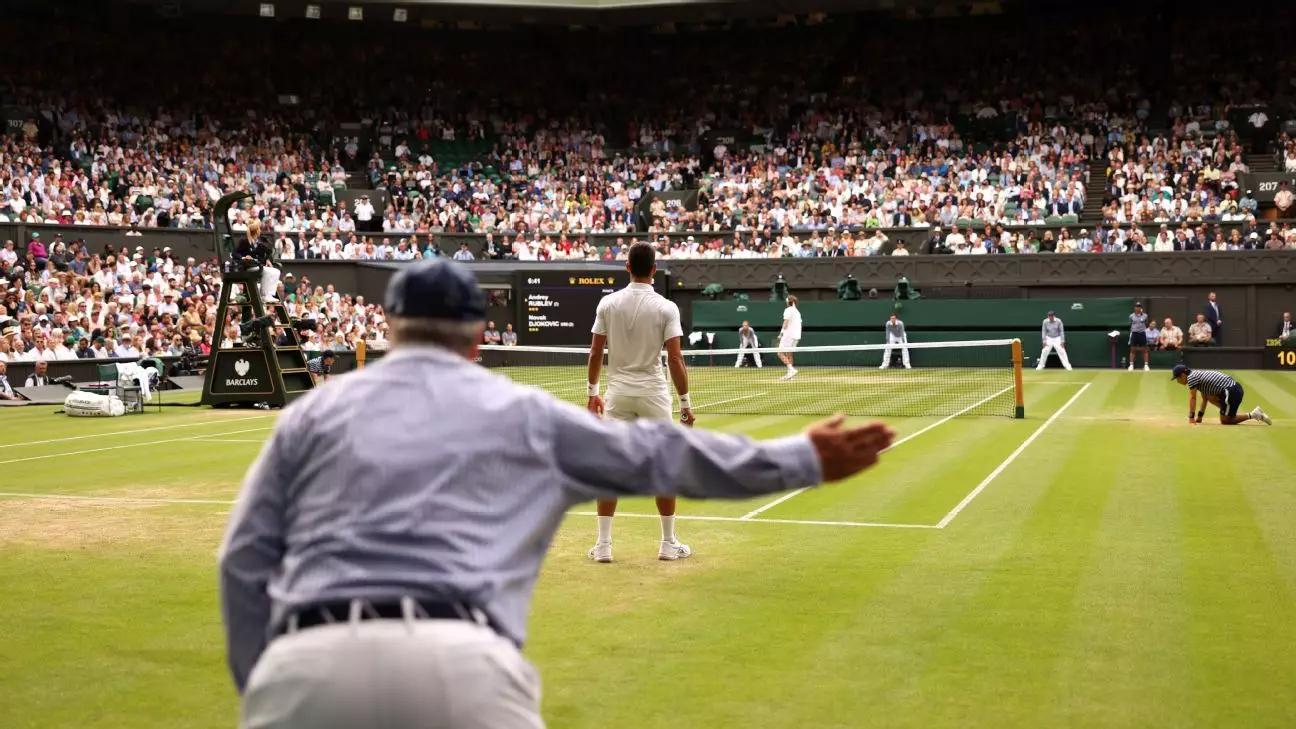The All England Club has formally announced a landmark decision that will reshape the landscape of tennis officiating at the Wimbledon Championships starting next year. For the first time in 147 years, human line judges will be entirely eliminated, supplanted by artificial intelligence-driven line-calling technology. This bold move marks a significant shift in how the prestigious tournament, steeped in tradition, will operate moving forward.
Recent years have seen a surge in the adoption of automated line-calling systems across various tennis competitions. With the US Open introducing the Hawk-Eye Live system in 2020, players and audiences alike have become increasingly familiar with the reliability of technology in making line calls. The ATP Tour plans to integrate this system more comprehensively by 2025, a trend that demonstrates the growing acceptance of high-tech solutions in sports officiating. Wimbledon’s decision to implement automated line-calling across all 18 courts makes it the latest major event to leverage this technology, signifying a new norm within the sport.
Sally Bolton, the CEO of the All England Club, emphasized that the decision to phase out line judges was the culmination of extensive evaluation and testing of automated systems. „We consider the technology to be sufficiently robust and the time is right to take this important step in seeking maximum accuracy in our officiating,“ Bolton stated. This shift aims to ensure that players experience consistent conditions, mirroring those they have at other tournaments employing similar systems. With AI at the helm of line-calling, Wimbledon is prioritizing accuracy, which is essential in a sport where the margin of error can be razor-thin.
While embracing this innovative approach, the All England Club has made a clear commitment to honor its historic roots. Bolton acknowledged the vital role that line umpires have played in the championship for decades, expressing gratitude for their service. It showcases the challenge many traditional institutions face when incorporating technology—striking a balance between progress and the values that have defined them over the years. The transition to fully automated line-calling illustrates Wimbledon’s willingness to adapt while still appreciating the heritage of the tournament.
Alongside the introduction of AI line-calling, the All England Club has also announced alterations to the schedule for the men’s and women’s singles finals. Both finals are set to begin at a later time, with provisional start times established for 4 p.m. local time. This adjustment indicates a desire to enhance the viewer experience, strategically placing matches to accommodate larger audiences and promote greater engagement.
As Wimbledon navigates this technological advancement, questions remain about the impact on the tournament’s atmosphere and the role of human officials in future events. While the move to AI-driven line-calling might invite skepticism from purists concerned about losing the human touch in officiating, the overarching goal remains clear: to enhance the game and share a more precise, fair experience for players and fans. By embracing innovation within a traditional framework, Wimbledon is poised to enter a new era that could redefine the future of tennis officiating.


Napsat komentář